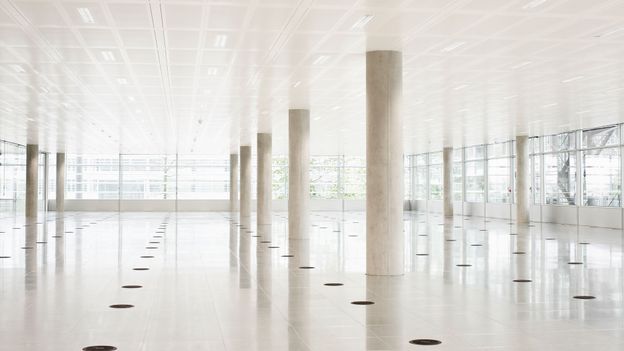As more employees work from home in the hybrid-work era, many companies are finding they need smaller offices. Compared to pre-pandemic floorplans designed to house as many workers as possible, more businesses are looking towards more compact but higher-quality spaces for the future.
According to figures from global commercial real estate firm JLL, 48% of clients in major markets, including the UK, Germany and France are seeking to decrease their footprints in the next three to five years as a result. “Our clients are working out what to do with the space they’ve got by analysing data from recent years to come up with long-term plans,” says Stephanie Hyde, CEO UK and CEO EMEA Markets at JLL. “In addition, many leases are expiring, companies are pressing ahead to meet sustainability agendas and they’re focusing on getting hybrid working right.”
This imminent corporate downsizing is set to have huge ramifications for the real estate industry. As more leases end, experts anticipate a tidal wave of available commercial space on the market. According to March 2024 data from workplace research firm Leesman, total space reductions could reach 40% across its global client base of 766 firms. Projected onto central London, if the same proportion of the city’s occupiers opt to reduce their footprints, this corporate downsize would be the equivalent to 56.6 million sq ft (5.26 million sq m) of office space.



Some of the concerns I’ve seen are that while electrical should be fine for the type of stuff America uses 110v for, overkill even, the plumbing is all in the wrong places and likely inadequate for how many people will need showers and baths, the HVAC isn’t really meant for the granularity people would want, and it would be a challenge to get the ventilation and heavy duty circuitry to every unit to safely allow for cooking.
What I do think they could do is convert to dormitory style housing with shared kitchens and baths, and while that limits your target audience, it limits it to the people most in need of affordable housing. Refurbing existing office blocks is certainly not a panacea, and I am already cringing at some government that thinks it would be, but I don’t think we’re too far off from denser cities considering it in some cases. I think the bigger opportunity is in new builds and more drastic redevelopments. With very few exceptions, I don’t think any urban core needs to be building dedicated office buildings anymore. Seems it would be way easier and sufficiently cost effective to allow for conversion later even if it’s not in the plan now.